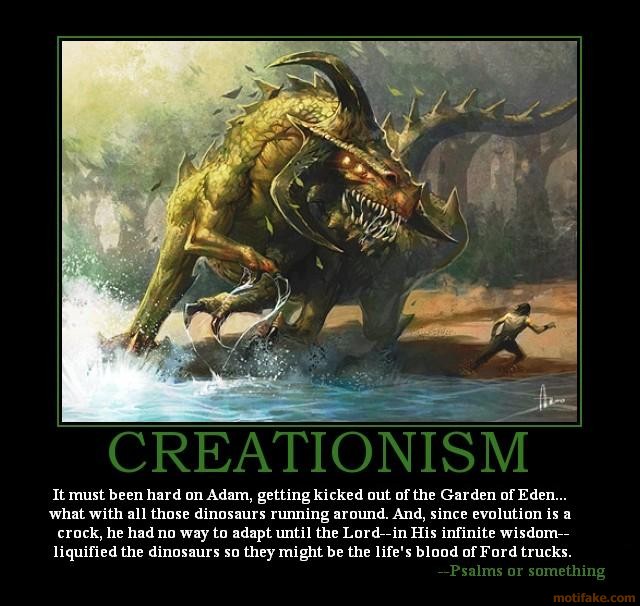Some Evolution Accepted
Micro Evolution Accepted
-
Creationists have had to give way because the evidence for evolution is so overwhelming. So there is a spectrum of belief - at one end of the spectrum are the hardline literalists who insist that the world and all its occupants popped into being in one week 6000 years ago. At the other end of the spectrum are those who accept that the world is billions of years old, and that some evolution has taken place.
The evidence for micro evolution is pretty hard to deny. We are all familiar with parasites and germs evolving resistance to drugs and poisons. (This is the nub of evolution: the environment puts pressure on an organism. Those which can't survive long enough to reproduce, don't pass on their genes.) So (some of) the creationists concede the truth of that, but insist that speciation or macro evolution can't happen.
But the mechanism is exactly the same. Two groups are isolated from each other. Each are subjected to different pressures from the environment and different genetic qualities survive. Given enough time the differences will be such that the two groups cannot interbreed, and two new species will have formed.
Always funny to watch.
"No no no I don't believe in evolution!"
"What you don't think germs evolve resistance to antibiotics?"
"Well .... yes but that's only micro evolution"
Rapid Evolution Accepted
-
There is a group of Creationists dedicated to proving that the Noah's Ark story is literally true. To make that work they suggest that instead of a pair of every animal (which would mean a boat full of millions of animals), there were just a pair of 'ancestors' which then underwent rapid evolution - so a single pair of cats became all the species of cats we have today.

This is a good example of Christian story telling. They don't understand (or choose to ignore) the science, in that nobody else believes species would separate this quickly. But they need a mechanism to make their other story work, and this sounds good enough.
Michael Behe
-
Michael Behe is a prominent (and possibly the only) published biologist in the Intelligent Design movement. He believes that evolution has happened, but claims that only within species, not transforming one species into another.
"For example, both humans and chimps have a broken copy of a gene that in other mammals helps make vitamin C. ... It's hard to imagine how there could be stronger evidence for common ancestry of chimps and humans. ... Despite some remaining puzzles, there's no reason to doubt that Darwin had this point right, that all creatures on earth are biological relatives."
Wikipedia
This puts him somewhere between micro and macro evolutionists, because he's accepting speciation - a primate ancestor some of whose descendants evolved into monkeys, others into humans.
William Lane Craig
-
William Lane Craig’s main point is this: if you are careful to define terms such as “random” and keep evolutionary biologists to the actual verifiable scientific claims of evolutionary theory — and not allow unwarranted atheistic philosophical overshoot and naturalistic metaphysical extrapolation — then there is nothing in standard evolutionary theory that is inherently incompatible with Christian theism. Philosophical naturalism is at odds with Christian theism, not evolutionary theory properly stated.
Another moderate Christian viewpoint